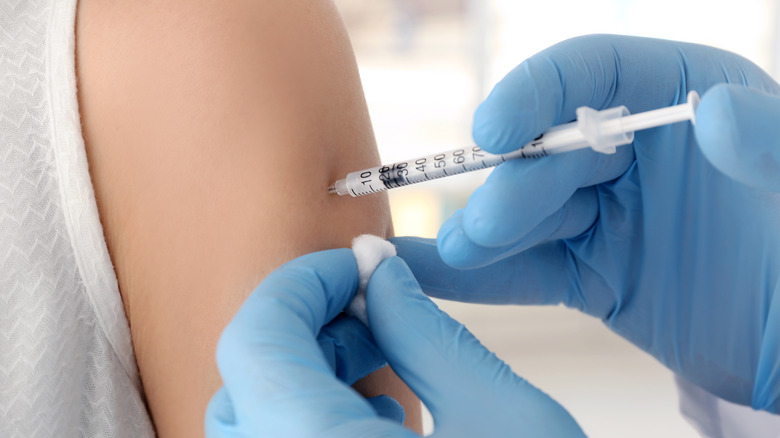Does The COVID-19 Vaccine Really Cause Heart Inflammation?
Various side effects have been reported since the release of the FDA-authorized COVID-19 vaccines. According to the Mayo Clinic, these have typically been mild, including pain at the vaccination site, fever, fatigue, chills, headache, and some other discomforts that last up to several days. However, NBC News reported on June 10, "A higher-than-usual number of cases of a type of heart inflammation has been reported following Covid-19 vaccination, especially among young men following their second dose of an mRNA vaccine, the Centers for Disease Control and Prevention said Thursday."
The 226 cases have been diagnosed with either myocarditis or pericarditis after receiving the vaccination. The largest proportion of the cases were found to be in men under 30. One reason for the concern is that the number of cases was expected to be below 100 within this demographic. Another cause for concern is that more than 50% of the myocarditis cases occurred in people in their teens to early 20s, even though this group accounted for a very small portion of the total number of people who received the shots.
"We clearly have an imbalance there," said Dr. Tom Shimabukuro, deputy director of the CDC's Immunization Safety Office, during a presentation to a Food and Drug Administration advisory group (via NBC News). More investigation is expected to confirm whether or not COVID-19 vaccinations are directly linked to these recent heart issue discoveries.
What is the treatment for myocarditis and pericarditis?
The CDC defines myocarditis as "an inflammation of the heart muscles" and pericarditis as "inflammation of the lining outside the heart." Both are caused by the body's reaction to a trigger, such as an infection, and can include symptoms of chest pains, shortness of breath, and palpitations.
With regard to treatment of myocarditis, if the condition is not severe, it typically gets better on its own. Sometimes, though, a medical professional may recommend antibiotics to address the underlying bacterial infection (via MedicineNet). The FDA has yet to approve a specific treatment for pericarditis, but doctors will oftentimes recommend over-the-counter medications, such as aspirin or ibuprofen, for less severe cases to address the discomfort. Your doctor may also suggest antibiotics, as well as steroids, if the inflammation does not respond to the over-the-counter medications (via Myocarditis Foundation).
Given that contracting COVID-19 poses a greater risk than these new possible side effects of receiving the COVID-19 vaccine, the CDC stands by its recommendation that people 12 years old and up continue to take the vaccine.


